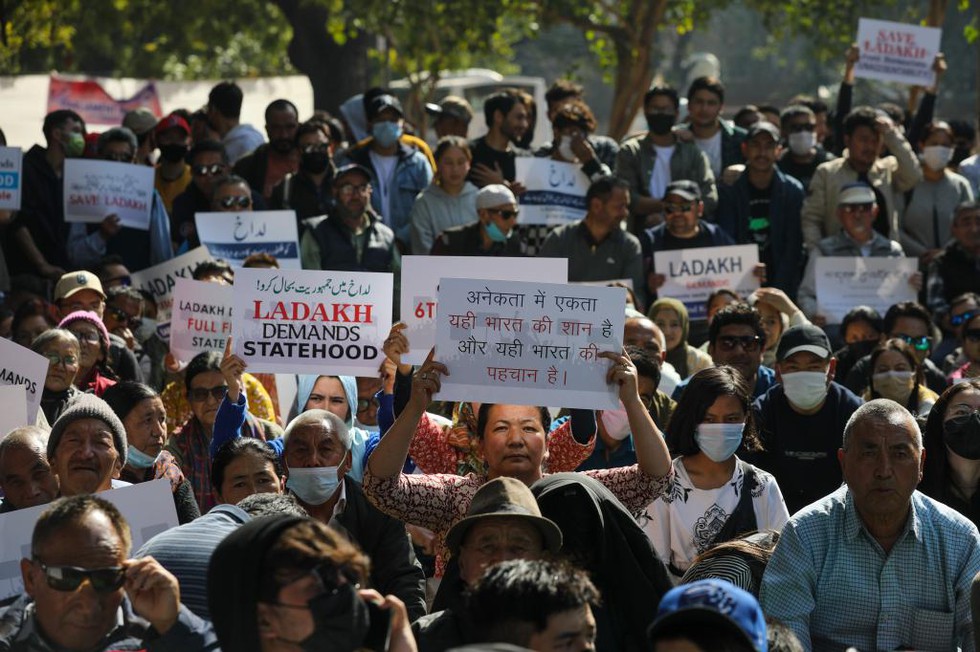Sonam Wangchuk, an acclaimed innovator and education reformist, advocates for the adoption of the Sixth Schedule of the Indian Constitution in Ladakh to preserve its cultural heritage and secure greater autonomy.
The Sixth Schedule of the Indian Constitution
- The Sixth Schedule provides special provisions for the administration of tribal areas in certain states: Assam, Meghalaya, Tripura, and Mizoram.
- It grants significant autonomy, allowing these regions to have their own elected bodies and make laws on specified subjects.
Wangchuk’s Proposal for Ladakh
- Wangchuk believes implementing the Sixth Schedule in Ladakh would empower the local population and safeguard their cultural identity and traditional way of life.
- He sees it as a response to the region’s transition from a state to a Union Territory in 2019 and the rapid changes it has undergone.
Importance of Preserving Ladakh’s Cultural Heritage
- Ladakh possesses distinct cultural heritage and strategic geopolitical significance.
- Transition to a Union Territory raises concerns about preserving cultural and environmental integrity.
Debate Surrounding Wangchuk’s Proposal
- Support: Wangchuk’s proposal could provide a framework for sustainable development and cultural preservation.
- Concerns: Practical implementation and compatibility with existing governance structures are questioned.
Broader Implications
- Wangchuk’s advocacy reflects a broader push for decentralization and grassroots empowerment in India’s diverse regions.
- The proposal reignites discussions about Ladakh’s future trajectory and the balance between development and cultural preservation.
Multiple Choice Questions (MCQs):
- What does Sonam Wangchuk advocate for in Ladakh?
- a) Integration with neighboring regions
- b) Adoption of the Sixth Schedule of the Indian Constitution
- c) Privatization of cultural heritage sites
- d) Dependence on central government for decision-making
- Which regions in India currently operate under the Sixth Schedule?
- a) Assam, Rajasthan, Gujarat, and Punjab
- b) Kerala, Karnataka, Maharashtra, and Tamil Nadu
- c) Assam, Meghalaya, Tripura, and Mizoram
- d) Uttar Pradesh, Bihar, Jharkhand, and West Bengal
- What concerns arise from Ladakh’s transition to a Union Territory?
- a) Loss of strategic importance
- b) Environmental degradation
- c) Preservation of cultural identity and integrity
- d) Decreased access to resources
